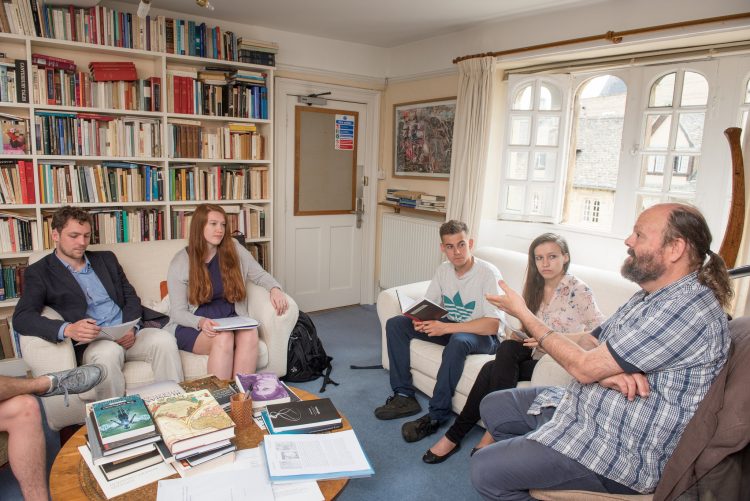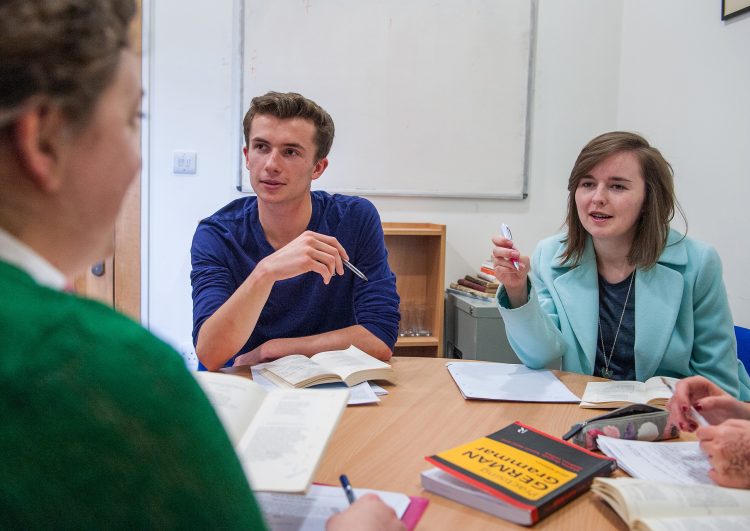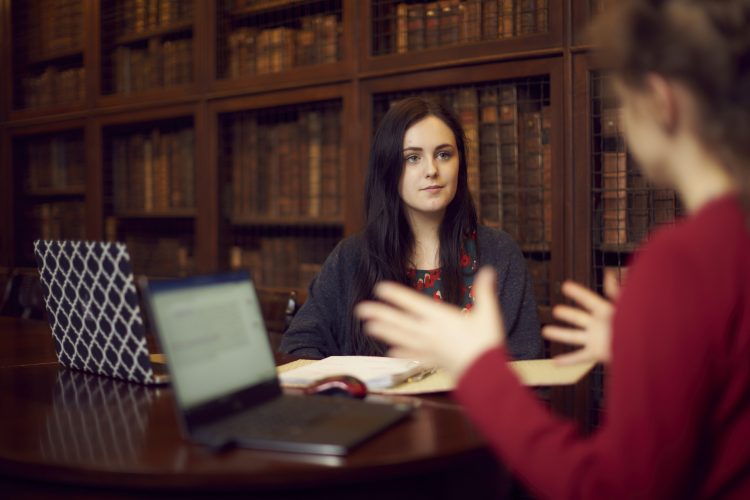Charlie- Spanish and Beginners’ Russian
Journey to Oxford
Hey! I’m Charlie and I’m a Second Year studying Spanish and Russian at Teddy Hall. As I took Beginner’s Russian, I’m currently now in Russia, enjoying life in Yaroslavl’!
I’m from the West Midlands (Worcester) and have always been state-educated. I have also moved around schools a fair bit – having been to five different ones I know that it can be hard to settle into an educational environment.
Why did you choose to study your course?
Before applying to university, I knew that I wanted to study Spanish and when I found out that I could learn a new language from scratch, I felt I couldn’t miss the opportunity! The Beginner’s Russian course is intense – unlike most modern languages courses, you go abroad in Second Year. This is in order to get your Russian up to speed. It felt quite daunting arriving this September, having only a little knowledge of Russian. However, myself and friends on the course have been amazed at how quickly we’ve picked things up. It’s satisfying how much Russian we’re learning and being able to read some literature in the original Russian is really cool too!
How is your course taught?
The first year of my course is taught through a range of language classes, lectures and tutorials. The workload for Russian is significantly more than Spanish – in first year we worked through the hefty Rus’ textbook. In the first year of the Beginner’s Russian course we study purely language, which means a lot of vocab and grammar. Whilst this is challenging it’s definitely worth the investment for when you get to Russia.
Russians are very helpful to learners though and mistakes are all part of it – as I found out when I asked my bemused host for a boat (лодка – lodka) to stir my coffee. He smiled and thankfully brought over a spoon (Ложка – lozhka) instead!
Describe your average Oxford day…
An average day during my first year at Oxford would include a couple of hours of Russian lessons (grammar, speaking and comprehension) as well as either Spanish speaking or grammar lessons.
I also had ‘tutes’ (tutorials) once a week in Spanish on the literature we were studying as well as translation classes.
I had never formally studied literature before, so writing essays on Spanish texts was a bit of a jump. However, I received lots of support and encouragement from my tutors and quickly found my essays improving.
After lessons finished, I tried to crack on with some Russian vocab or grammar or pre-reading for an essay.
Once this was done I’d often go for a run, catch up with friends or chill out in college. Sadly, last year because of the pandemic it was difficult to get involved with clubs and societies as much as I’d have liked but I’m looking forward to joining in loads when I’m back with next year.
Why did you decide to apply to St Edmund Hall? What is your favourite thing about it now you’re here?
I originally applied to another college but I’m glad that I ended up at Teddy. I was reallocated at interviews which is really common (around 40% of Oxford students end up studying at a different college from the one they originally applied to and they all still think theirs is the best!)
I love the communal atmosphere in college and there’s always plenty to get involved with – we also have a converted church (St Peter-in-the-East) as our college library. Studying surrounded by stained-glass windows is an interesting experience!
What helped you prepare for the admissions process?
After my A-levels I took a gap year and actually missed the Oxford application deadline in Year 13 (whoops). Whilst on my gap year, I kept my Spanish going mostly by listening to Spanish music, reading some books and articles as well as watching lots of Spanish films and TV – Netflix has a load of good ones!
Before the MLAT (Modern Language Aptitude Test) I found it helpful to go over grammar and vocabulary learned from A-levels as well as chat to other Spanish speakers.
The LAT (Language Aptitude Test) is also taken by those starting a new language from scratch. This involves decoding a made up language! I found it enjoyable – though it’s definitely worth practising with the online past papers to get used to how it all works.
In terms of showing interest in your new language, I’d recommend reading some translated literature: One Day in the Life of Ivan Denisovich by Alexander Solzhenitsyn is a great place to start for Russian. Short stories are also a good idea. It’s also useful to try to form some basic opinions on what you’ve read – don’t worry, these don’t have to be overly detailed – it just helps to show your enthusiasm for the subject!
What was the biggest misconception you had about studying at Oxford before you came?
I think the biggest misconception I had about Oxford was that it would be full of posh people who would have nothing in common with me. This isn’t the case, so many of the people I’ve met come from a range of backgrounds. This is what helps to make Oxford an interesting place to be! I’ve also met people here who went to private schools who are now close mates of mine, it’s all about what you’re like as a person rather than where you’re from. If I could tell one thing to a prospective applicant, it would be: don’t worry about it, you’ll always meet people like you!
Where next?



